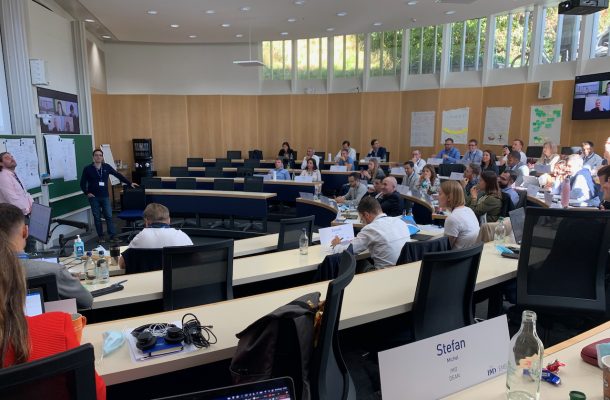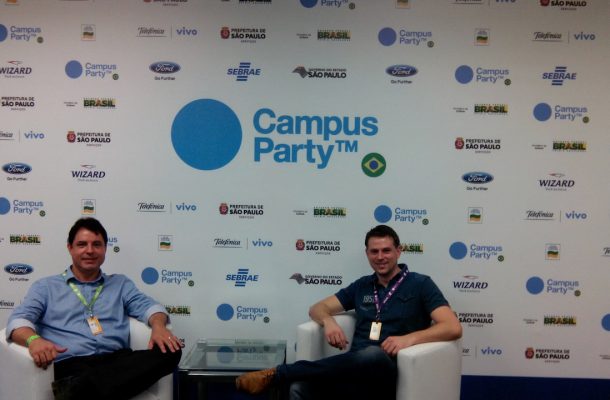Referenties van Onderzoek & Advies
In de wereld van constante verandering en innovatie vereist het navigeren van organisatorische transformatie zowel expertise als wendbaarheid. Met mijn bedrijf Innovative Dutch begrijp ik de uitdagingen uit de eerste hand. Met jarenlange ervaring als consultant en interim-leider heb ik de impact van dynamisch leiderschap op het stimuleren van betekenisvolle verandering gezien.
In deze ruimte bied ik op maat gemaakte oplossingen die zijn ontworpen om aan de unieke behoeften van zowel hogeronderwijsinstellingen als zakelijke entiteiten te voldoen. Van het sturen van organisaties door overgangsperioden tot het bieden van strategische begeleiding voor langetermijnsucces, mijn aanpak is gebaseerd op praktische resultaten.
Ontdek het scala aan interim-diensten en consultancy-aanbiedingen die zijn ontworpen om uw organisatie te versterken. Of het nu gaat om het opvullen van tijdelijke leiderschapslacunes of het bieden van strategische inzichten, ik ben hier om uw reis naar duurzame groei en innovatie te ondersteunen. Laten we samenwerken om uitdagingen om te zetten in kansen en de weg vrij te maken voor een betere toekomst.
Cases

Business Model Game & Innovation Management Game at the University of Luxembourg
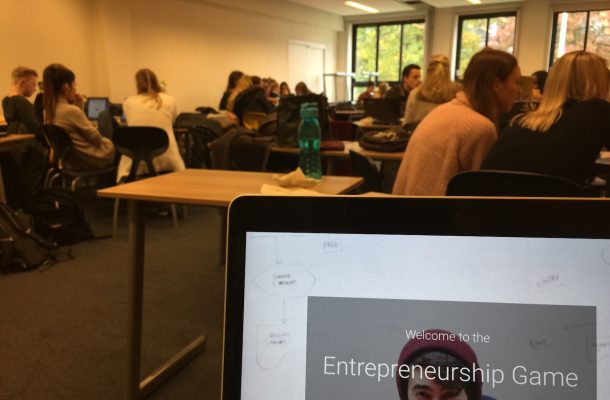
Transformative Entrepreneurship Game for Tilburg University, NHTV, and Avans
- Built upon the game model developed by Innovative Dutch, the game simulated a realistic environment enriched with game elements for optimal learning.
- Grounded in 'The Lean Startup' model, the game covered pre-start, start-up, and scale-up phases of entrepreneurship.
- Designed to cater to both HBO and WO students, adaptable to varying skill levels and academic domains.
- Configurable to integrate seamlessly into existing modules, with optional extra modules for customization.
- Offline assignments (plugins) added depth to the gameplay.
- Depending on options, the game spanned 1EC-4EC.
- A denktank (think tank) was established, providing support in content, theory, and gamification throughout the development.
- Co-creation emphasized joint development, with feedback incorporated in both the developmental and operational phases.
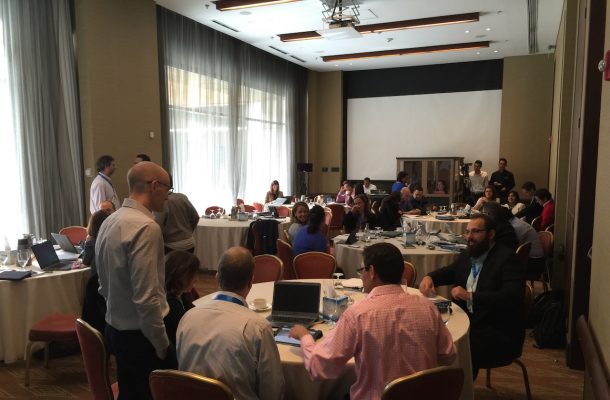
Inspiring Innovation at Kimberly-Clark through Customized Simulation
- Takeaways and Objectives:
- Concrete takeaways for Country Managers post-game session.
- Emphasis on innovation as a social process.
- Understanding market dynamics, identifying unmet needs, and fostering an entrepreneurial mindset.
- Active participation in the innovation cycle, strong communication, and integration into strategic planning processes.
- Understanding KCC's Innovation Process:
- Insight into KCC's Innovation Management Framework, a stage-gate model.
- Measures of success for various stages within the innovation process.
- High-Priority Innovation Topics:
- Selection of key innovation topics for the session: Marketing/Branding Innovation, Ideation, Open Innovation, Business Model Innovation.
- Special Terminology:
- Introduction to special KCC terminology, including IMF (Innovation Management Framework), SBP (Strategic Business Plan), ABP (Annual Business Plan), IBP (Integrated Business Plan).
- Challenges and Goals:
- Understanding the challenges faced by KCC in the innovation process, including maintaining business attractiveness and achieving growth.
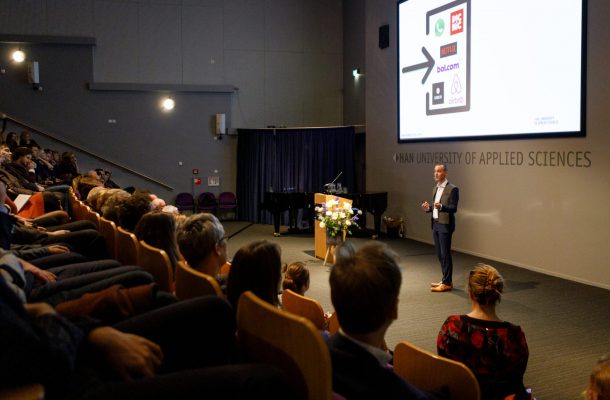
Establishing the ‘Lectoraat Smart Business’ at Han University of Applied Sciences
- Lectoraat Smart Business Overview:
- Aimed to contribute to the development of a 'Smart Region.'
- Focused on innovation and entrepreneurship in smart technology.
- Supported by Centres of Expertise, lectorates, and education.
- Research Levels and Methodology:
- Research conducted at three levels: exploration, implementation, and aggregated.
- Student-centered research focusing on operational questions.
- Lectoraat acted as a hub for organizations with innovation queries related to smart technology.
- Explored the role of digital technology in shaping new business models.
- Positioning:
- Formally positioned under the Institute of Business and Law (IBR), supported by the Knowledge Center for Business Development & Co-Creation.
- Aligned with the goal of contributing to the Smart Region program.
- Thematically positioned at the intersection of digital innovation, business models, and open innovation.
- Objectives of Lectoraat Smart Business:
- Professional Practice and Society:
- Develop knowledge and tools applied by organizations.
- Contribute to the future professional profile of students.
- Ensure systematic evaluation of product and service quality.
- Education and Training:
- Equip future professionals with skills for the digital era.
- Update curricula in line with digital innovation, business models, and open innovation.
- Collaborate with internal and external stakeholders for aligned programming.
- Ensure systematic evaluation of product and service quality.
- Knowledge Development and Sharing:
- Establish an evolving knowledge circle guided by the lector.
- Focus on design-oriented and action-oriented research.
- Contribute to a robust body of knowledge in business models, digital innovation, and open innovation.
- Supervise (aspiring) PhD candidates.
- Facilitate knowledge transfer within and outside HAN.
- Professional Practice and Society:

Innovation Management Game at Warwick Business School
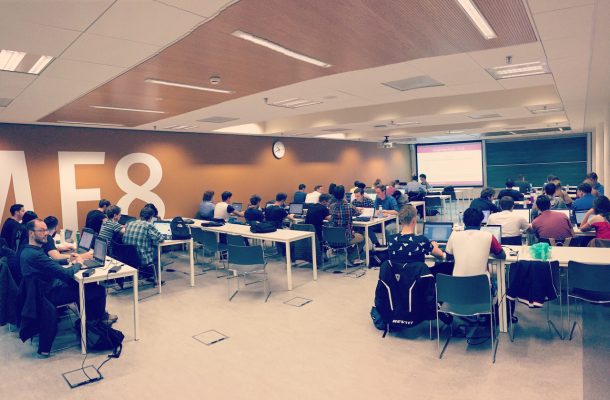
Open Innovation Mastery at TU Eindhoven – A Decade of Excellence
- Strengthening Foundations (Weeks 1-4):
- Analyzing the strengths and weaknesses of closed and open innovation models.
- Emphasizing the pivotal role of the business model in connecting internal and external innovation.
- Opening Up to Innovation (Weeks 5-8):
- Exploring the outside-in perspective, involving collaborative modes like M&As, alliances, and CVC.
- Understanding the crucial role of engaging customers through crowd-sourcing and co-creation.
- Broadening Perspectives (Weeks 9-12):
- Discussing open innovation from the lens of small and medium-sized enterprises.
- Unpacking the roles of inter-firm networks and business ecosystems in the research, development, and commercialization phases.
- Differentiate between closed and open innovation models.
- Recognize the significance of the business model and components of an open innovation business model.
- Identify modes facilitating the outside-in and inside-out perspectives.
- Interpret the role of lead users, crowd-sourcing, and co-creation.
- Apply open innovation concepts to real-life situations, including the Open Innovation Management Game.
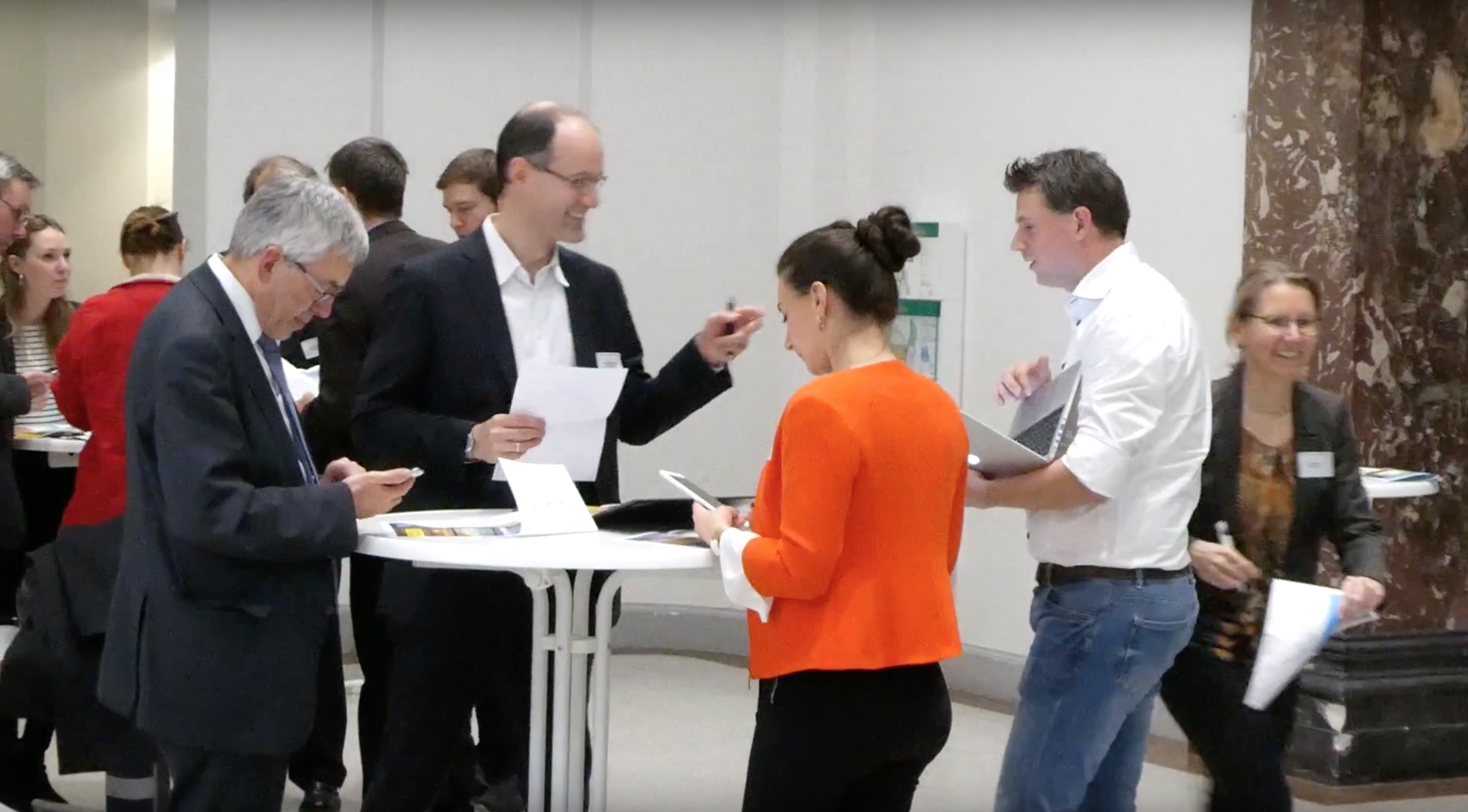
Gamifying Open Innovation – A Dynamic Workshop for the Province of North Brabant & Baden Wurttemberg

Implementation of the Innovation Management Game at Aalto University
